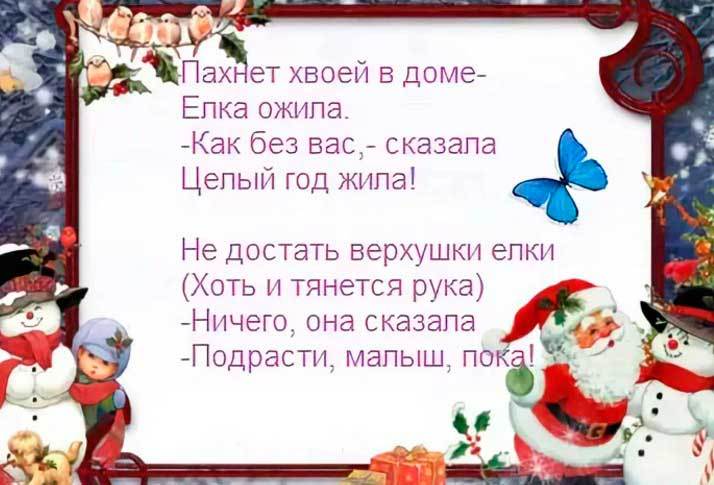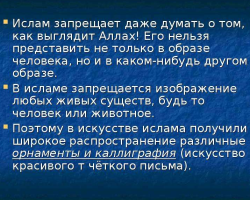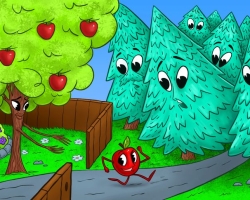Some parents tell their crumbs a variety of poems and nursery rhymes from birth, while others wait for the child to become older and begins to show interest in poems and memorizing them. Which of the options is true?
Content
- How to quickly teach poetry with a child: practical tips
- How to quickly teach poems with a child: the main methods
- At what age to teach poetry with a child?
- How to teach poetry with a child 2-3 years old: useful tips on working with children, features of memorizing poems, examples
- How to teach poetry with a child 4-5 years old: useful tips on working with children, features of memorizing poems, examples
- Video: We teach the child to quickly learn poetry
The memory of a small child is a clean sheet. And it is precisely the parents who should ensure that this “leaf” is filled with necessary and useful knowledge. It is important to understand that memory, like muscles, can also be trained on how well you do it with your child, how quickly he will remember information, including poems.
How to quickly teach poetry with a child: practical tips
- To decide when to start, of course, only parents, however, need to understand that the sooner you begin to deal with the child, the easier and faster he will memorize and learn poems.
- Many parents note that they constantly tell the children nursery rhymes, try to interest them, attract them to memorization, but everything is to no avail. Why is this happening? Because you need to teach children to memorize poems correctly, following certain rules
Teachers and other experts offer parents to use such practical advice on learning a stimulus with their children:
- Choose poems depending on the age of your child. No matter how smart and developed your baby is, at 2 years he cannot learn a huge “adult” verse and with feeling, to really tell you it. Do not bother small children with huge and serious works, choose poems that would be interesting and understandable to the baby at his age.
- Very young children are great the nursery rhymes, for example, beloved “Geese, geese g-ha-ha”, “magpie-thorough”, “rails-rams, sleepers-shpala”. More adult children choose more complicated, however, also keep in mind that they should be clear to them.
- Explain all incomprehensible words to the child. This advice concerns not only the study of poems with children. Imagine for a second that you need to learn anything in a foreign language that you do not know. Such memorization will take a bunch of time, while, as soon as you tell you learned at the right time (for example, at a performance), you will forget it almost immediately, because you don’t understand what you were talking about, what was the meaning of the told, etc. Another thing When you explain the meaning of words, text. Associations will immediately begin to work, telling the verse, the text, you will represent and understand what you are talking about.
- For a child, any language is initially alien and incomprehensible, therefore, even a simple word whose meaning is 100% understandable for an adult, the baby is most likely unknown.

A child of any age needs to explain the meaning of words, however, more attention should be paid to this process when you teach the verse with a child 4 years old and older:
- To start read the verse out loud yourselfLet the baby listen to him.
- Next, ask if the child understands what is this poem about. Ask simple questions, like: “Who is this poem about?”, “Who is talking about in this poem?” If you are sure that the child does not know the meaning of a word, but at the same time he says that he knows, ask the question correctly and immediately suggest telling, show: “Do you know what a lightning rod, a net, etc.? Let's tell you/let's go ask dad/grandmother. ” The child will be able to quickly and qualitatively teach poems only if he understands what he is talking about.
- If possible, learn only those rhymes that have found a response in the baby's heart, give him an opportunity choose a work for yourself. Well, if this is not possible, for example, you need to learn the verse on the matinee, which the teacher himself chose for the child, try to interest the baby, make him like the rhyme.
To do this, use the following ways:
- Read the rhyme and show the baby that you really liked him, that the work is funny and funny.
- Read the verse with intonation, expressively, connect the acting game. For example, if we are talking about animals in the work, show them to the baby, try to show what these animals are doing. The main thing, do not be afraid to be funny.
- Offer the child reincarnate In a bunny/cat, etc. From a poem. For example, put on an animal mask on it, draw antennames, make a tail from improvised means, etc.
- If the child is adult enough, explain what exactly you like the work, share your experience, perhaps you have once taught the same poem.
- If you teach a verse with a small child, offer him to learn him, for example, as a gift for mom/grandmothers/Santa Claus etc., but in no case do not manipulate the feelings of the child if the baby refuses to teach him, do not insist. You can’t say something like a baby: “Don't you love dad? If you love - teach ”,“ Do you want a gift? If you do not learn the verse, Santa Claus will not bring it to you ”, etc. For most kids, to learn a verse for someone a great joy, but there are other children, so consider this fact.
- If the crumb is difficult to memorize the lines, try portray them on paper. Just try to draw each line on paper, you need to draw what is about in the line. Next, try to tell a verse with a child using these drawings as hints.
- Do not forget that everything is very good for children quickly bothers and gets boring, Therefore, do not require them to study the verse in 2 days. Learn every day a small passage, if we are talking about a baby 2-3 years, a couple of lines are enough. As soon as you see that the child begins to get bored, immediately try to attract his attention, for example, invite him to see and listen to how you tell this rhyme.

- If the child behaves so because of fatigue, offer to do something else, play, lie down, perhaps watch your favorite cartoons. A little later, return to the study of the work again. It is best to do this in an unobtrusive form, that is, do not sit the child on a chair, put the book in front of him and forcefully make you listen and repeat the verse.
Use free time when you dress somewhere, go to the elevator, stand in line, bathe the baby. Learn to combine the study of poems with other matters.
How to quickly teach poems with a child: the main methods
Despite the age of the child with whom you will teach a verse, initially you need to decide which methodology you will use. There are 4 main techniques:
- Visual. This method of memorizing poems is that the work will be visualized. It is best to resort to drawing. To do this, initially read out the child, and then portray each line on paper. Such a drawing will serve as a hint for your baby.
- Motor. There are children who best remember verses during motor activity. What could it be? Collecting the pyramid, folding balls into a basket, stringing the beads on a thread, etc. How does it work? Everything is very simple. First read the verse out loud with your child. After start the game-teaching. You read the 1st line and throw the ball into the basket, then the child repeats this line and also throws the ball into the basket. After the baby is already learning the poem a little, let him not repeat the line after you, but calls the next after yours, etc.
- Auditory. It is much easier for some kids to teach poetry by ear. To do this, you do not need to draw anything, play during the process, etc. You just read the poem, and then ask the baby to repeat what he remembered. Continue to read from the place where the baby stopped. Thus, the whole process of memorization occurs.
- Logical. Sometimes such a technique of memorizing poems is used. To do this, you need to tell the child a work and ask him to repeat it. Explain everything that happens in the poem and causal relationships in it, but, of course, in a simple language. As soon as the child forgets the line, ask to think, remember associations and your explanations.

At what age to teach poetry with a child?
Start off teach poems with a childyou can at different ages, it all depends on your desire and ultimate goal. Of course, a child aged 1 year is unlikely to learn a poem, even if you really want it and make maximum efforts - this factor naturally needs to be taken into account.
- Start telling short rhymes, nursery rhymes, jokes to the baby from birth. This will accustom the baby to rhythmically organized information, and develop memory.
- Moreover, such readings and stories will let the child understand that it's fun and funny Therefore, the baby will have a pleasant experience and he will at a more conscious age without problems studying the works.
- As for the conscious memorization of the text, experts say that the best age is 3-5 years. This is due to the fact that at this age the child already understands what he is doing, gets pleasure from it, etc. Also, at the age of 3-5 years, our memory develops faster and best, therefore, the baby will be very easy to learn from poems, Even very long.
- Please note that all children are different, so bind strongly It is not necessary for the indicated age. If you see that the baby shows interest in studying and reading poems earlier, start doing earlier. If even at the age of 5, the baby categorically refuses to teach poetry, do not force, perhaps the desire will appear a little later or not appear at all - this is rare, but it happens.
- In this case, try finding another lesson that the child will like
How to teach poetry with a child 2-3 years old: useful tips on working with children, features of memorizing poems, examples
Teach poems with a child It is very important and necessary, however, to do it right so that the baby gets pleasure from the process, and the works are memorized quickly and easily.

In order to achieve positive results in this, sometimes difficult business, use the following tips:
- If your baby is 2-3 years old. You need to understand that a child of this age does not always want and can memorize huge verses, moreover, such an activity may not come to his liking.
The peculiarity of memorizing nursery rhymes and poems with children of 2-3 years is as follows:
- You need to choose small works that will be interesting and understandable to your baby. For younger age, works are perfect A. Barto "Toys", D. Harms "Ship", etc.
- It is desirable that those animals, objects, things that your baby already know and distinguishes are described in the verse, so it will be much easier for him to imagine what this verse is about.
- For young children, choose poems and nursery rhymes with a clearly expressed rhyme, they learn much easier and faster than others. Initially, invite the baby to end the line with a word that rhymes, then tell in turn the line and only after suggest the baby to tell the whole work.
- Turn the process of memorizing poems into a game. For example, tell the nursery and immediately show what is at stake. For example, we take a well -known, perhaps, all verse A. Barto "There is a goby, swinging." You can portray the same bull, show how it goes, sways. At the moment “... sighs on the go,” sigh, take your head. That is, portray everything that is described in the poem. So the child will remember the lines even easier and faster, and most importantly, this will not bother him, since everything will be perceived as a game.
- Do not force the child to teach the rhyme for too long, as it will begin to nervous and get bored quickly. Try to repeat the lines every day, but at different times.





How to teach poetry with a child 4-5 years old: useful tips on working with children, features of memorizing poems, examples
With children 4-5 years old, the process of memorizing poems looks a little different. Such guys should be accustomed to the fact that sometimes poems need to be taught and for this you need to observe, although not strict, but discipline:
- Children of middle preschool age It is necessary to set the task of memorizing works. It is best for such a process to allocate a certain time, but the lesson should last no more than half an hour so that the child does not get tired and does not lose interest.
- Choose more voluminous verses, with meaning, but those that will be available in the understanding of the child 4-6 years old.
- Try to teach the verse as a whole, not in lines. In this way, the child will better understand what is described in the work and, accordingly, it will be better to remember it.
- Do not forget to children of this age in the same way as the smaller ones to explain the meaning of new and incomprehensible words for them.
- Do not demand from the child accurate memorization of the verse, and even in a short time. Studying 1 verse consisting of 2 quatrains can take several weeks. But after the child will tell him consciously, with living emotions and intonation.
- You can also carry out educational process In the form of a game, for example, using a ball. To begin with, read the verse that you will teach several times several times. Next, read out the line and throw the ball to the child. As soon as the ball is in his hands, he must repeat the line that you told (first with your help, if necessary). Thus, you will study the verse in a relaxed environment.
- When the child more or less remembers the text, offer playing a little differently. The ball is in your hands, you say the 1st line of the work and throw the ball to the baby. The child no longer repeats this line, but from memory he tells the next and so in turn. This method of memorizing works is in great demand and is effective.



As you can see, it is not so difficult to learn a verse with a child, however, for this you need to spend a lot of time and effort. The main thing in this matter is not to rush, to treat your baby with understanding and not to demand from it the impossible.










Well, how else? Poems are needed to memorize. Here are stories, fairy tales, they can be retold. My child at the age of six fired a fairy tale, we read every evening, and over time began to retell it, even in the garden. In general, he has a good memory, I give him Mishka Evalar Multivitamins to make the brain work well. And of course we perform exercises for memory.